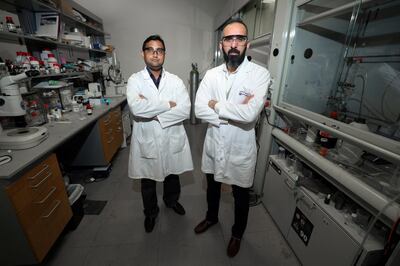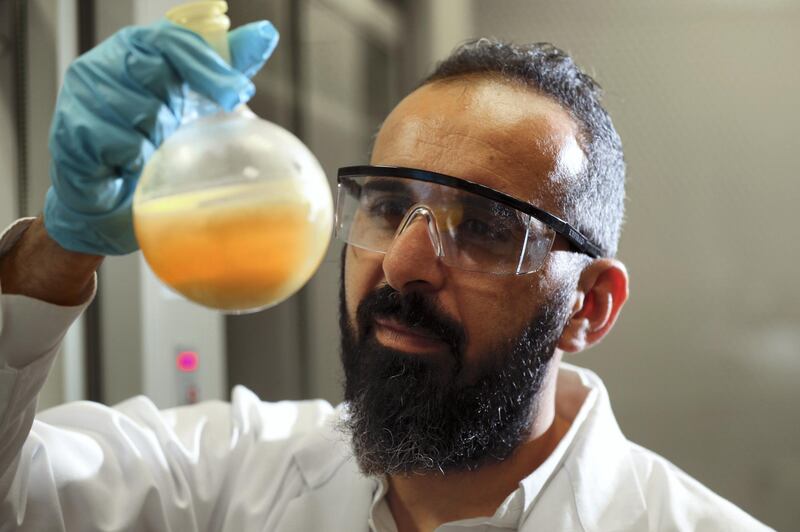Research in Abu Dhabi involving a molecule that delivers drugs directly to cancer cells could offer a new way of improving treatments.
The work at New York University Abu Dhabi could lead to methods with fewer side effects, as it reduces the likelihood that healthy cells will be harmed.
Dr Ali Trabolsi, an associate professor of chemistry at NYU Abu Dhabi and the researcher who led the study, said his colleagues were surprised when they saw the results of the work.
“With the first results, they came to me. They were very excited: ‘We never thought this would work the way it’s working.’ We were very pleased to see the results we observed,” he said.
The molecules the researchers developed are known as metal-organic trefoil knots (M-TKs) and are made up of a metal attached to an organic (carbon-based) ligand, which is a molecule that attaches to another molecule.
A major aim of cancer research has been to ensure that drugs that destroy cancer cells are targeted more specifically at those cells and not at other, healthy cells, and the M-TKs could help to achieve this.
In particular, the way the molecules work makes use of the way that cancer cells tend to be more acidic than non-cancer cells, said Dr Trabolsi.
The molecules are recognised by cancer cells, allowing them to enter. Once inside a cancer cell, the acidity makes the organic group to split from the metal, causing the cancer cells to undergo a programmed form of cell death.
Existing anticancer drugs will, by contrast, typically enter healthy cells as well as cancer cells, leading to harmful effects.
“The drugs they use as anticancer agents are small molecules; they diffuse through the [cell] membrane, unlike our molecules, which are large and are recognised by the cell receptors,” said Dr Trabolsi.
The researchers looked at the effects of M-TKs made using one of five metals (zinc, copper, iron, manganese or cadmium) on human cancer cell lines, on normal human cells and on zebrafish embryos. For comparison, similar tests were carried out using cisplatin, an existing anticancer chemotherapy drug.

M-TKs were more effective than cisplatin at destroying cancer cells and were not harmful to normal human cancer cells. In the zebrafish embryos, they targeted dividing cells, which is a promising result, because cancer cells are characterised by high rates of division.
“Our hybrid molecules, they’re more specific and selective towards cancer cells compared to the existing anticancer drugs,” said Dr Trabolsi.
“They will be much more active in cancer cells than healthy cells. This will minimise the side effects of any drug.
“These molecules will still go everywhere, but they will enter the cancer cells with less difficulty and they will only be active in the cancer cells.”
Although the study, published in Chemical Science, a journal of the UK's Royal Society of Chemistry, offers promise, Dr Trabolsi cautioned that it would be "a long time", several years at least, before the molecules could be tested on people. First, large-scale trials on animals such as mice would have to be carried out.
The researchers involved in the work included Dr Farah Benyettou and Dr Thirumurugan Prakasam, and Dr Anjana Ramdas Nair, a postdoctoral associate in the Sadler Edelpi Lab at NYU Abu Dhabi, who performed the zebrafish studies.







